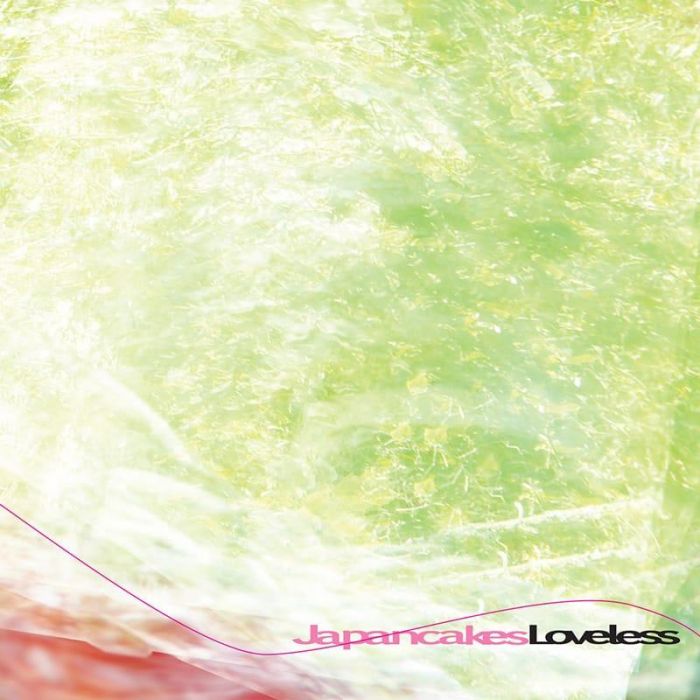Loveless by Japancakes (Review)

Within the realms of indie and alternative rock, there are few albums as hallowed as My Bloody Valentine’s Loveless. Along with other notables such as Slanted and Enchanted, Daydream Nation, and Spiderland, Loveless exists within a holy canon of sorts for which words like “classic,” “seminal,” and “influential” just barely scratch the surface. As such, the notion of a band covering the album in its entirety, of remaking it note by note… well, one can’t be blamed if they find something slightly blasphemous about the whole endeavor.
All sorts of questions come to mind when listening to Japancakes’ take on Loveless. Was it the result of a drunken bet? Too many late nights spent jamming away in the studio? An inside joke? An attempt to reinterpret a classic for a new day and age? Or perhaps simply an unwise display of gushing fan adoration?
The simple answer, however, is this: Japancakes’ Loveless is an honest, loving interpretation of My Bloody Valentine’s album that, at best, holds it own against the classic and even perhaps offers some new insights into the eleven songs and, at worst, is relatively harmless and nowhere near as offensive as skeptical MBV fanboys might think (or hope).
There are obvious differences between Japancakes’ Loveless and the original. You won’t find anything resembling the original’s ear-shatteringly beautiful soundscapes. Instead, Japancakes translates everything into a lazy, gauzy mixture of strings, vibes, keys, and pedal steel guitar. Which, most of the time, doesn’t pack a lot of oomph — not that the band is aiming for that, mind you. Rather, they’re quite comfortable with just letting the sounds drift into the background and even coaxing a smile or two, such as when John Neff’s pedal steel slathers a whole load of honky-tonk all over “I Only Said.”
Elsewhere, on the new versions of Loveless’ more obtuse and abstract songs, such as “Touched” — here the original’s whalesong guitars are replaced with solemn piano and dolorous, sobbing strings and steel guitar — Japancakes’ versions achieve an effect that, while not as revelatory as the originals, is still very much its own unique thing.
This is most obviously the case on dreamier songs such as “When You Sleep,” “Sometimes,” and “Blown A Wish.” Japancakes might sound more like “MBV lite” at times, what with the woozy, loungy strings and Neff’s dulcet pedal steel tones stepping in for Bilinda Butcher’s sensuous coo. But it actually works pretty well, and the new renditions achieve an emotional heft all their own.
Indeed, I found myself rather affected by Japancakes’ take on “When You Sleep,” one of my favorite MBV tracks, and one of the strongest offerings here. Here, the strings just whisper in your ears as the pedal steel — ever the evocative instrument — drifts to and fro, sighing and pining away the whole time. Meanwhile, light Rhodes pianos dance over equally light drumming. It’s a track that feels barely there, and yet can even potentially bring a tear to one’s eye.
Which is perhaps the best way to approach My Bloody Valentine. One of MBV’s defining attributes was the ability to create levels of noise and feedback within their songs so loud, they bordered on violating international law, and yet Kevin Shields et al. used them to create songs that always felt as light and delicate as a snowflake or soft kiss. At their best moments, Japancakes conveys all of that within a decidedly different musical context. And when Japancakes’ take on Loveless doesn’t work… well, it’s still real purty to listen to, and that’s not nothing.